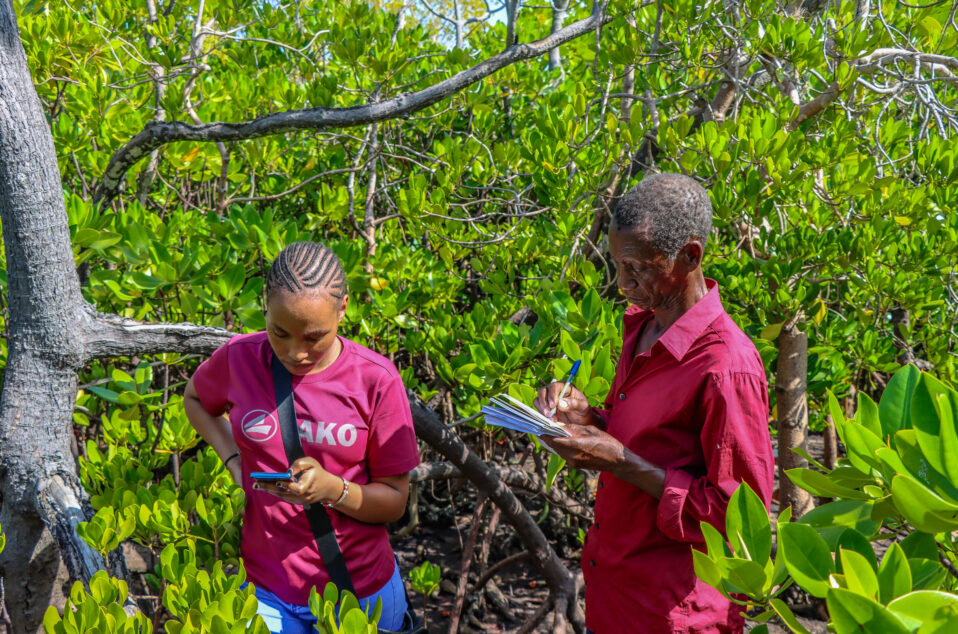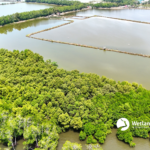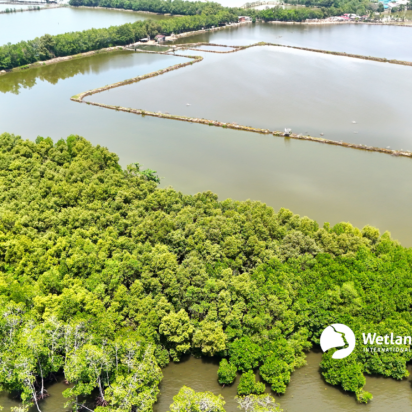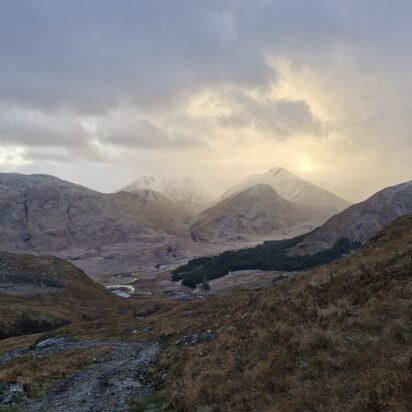
Our impact
Over 2020-2030 Wetlands International aims to safeguard and restore tens of millions of hectares of wetlands, bringing multiple returns for nature and people. Our theory of change encapsulates the three main phases of our work: to inspire, mobilise and upscale. These are the key ingredients of our organisational strategy for the period 2020-2030.
Our impact in 2022
- Our influential 2022 State of the World’s Mangroves report that led to the launch of the Mangrove
Breakthrough at COP27 aiming to leverage USD 4 billion to secure the future of 15 million hectares of mangroves globally by 2030. - A new 10 year partnership with the Swedish International Development Agency to upscale healthy, biodiverse, and well managed wetland landscapes globally by 2030, contributing to climate resilience and environmental, social and economic sustainability.
- A new Ramsar protected Wetland in Argentina, covering an area of 350.000 hectares of valuable peatlands, a key step towards its conservation.
- We reached 143,000 coastal zone and natural resource management professionals, raising awareness about the contribution of mangroves to food security and opportunities for improving production systems through large-scale mangrove restoration.
- We worked with land users to implement better management practices on more than 46,000 hectares of floodplain habitats under production (largely cattle raising / livestock) in the Paraná Delta in Argentina and the Pantanal wetlands in Brazil.
- As a result of our advocacy efforts, the EU is shifting its stance and accepting the significant role that improved peatland protection, increased paludiculture (wet peatland farming) and carbon farming can bring to the Green Deal implementation.
- Our Building with Nature Indonesia initiative was praised by the UN and given the inaugural World Restoration Flagship award.
- We enhanced the design of a wetland offset project of a multi-billion investment infrastructure project in Manila Bay, Philippines, such that it will restore thousands of hectares of healthy mangroves while enhancing resilience and livelihoods of local communities.
- In the High Andes of Peru, we worked with the herder communities to change their land management practices, resulting in 2,400 hectares of peatlands under improved
livestock grazing management offering sustainable income in harmony with nature.
A list of case studies
© OpenStreetMap contributors





